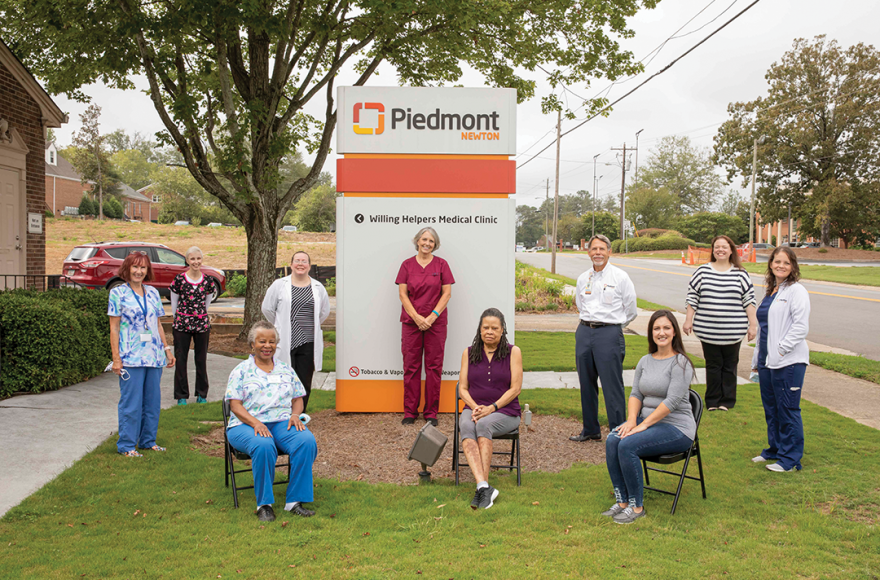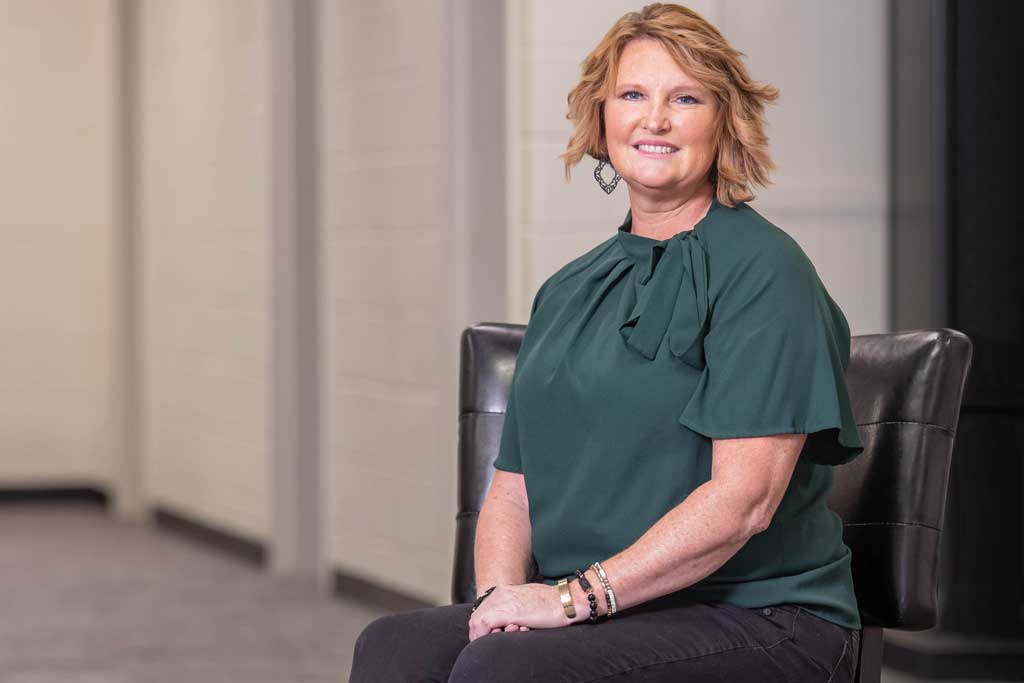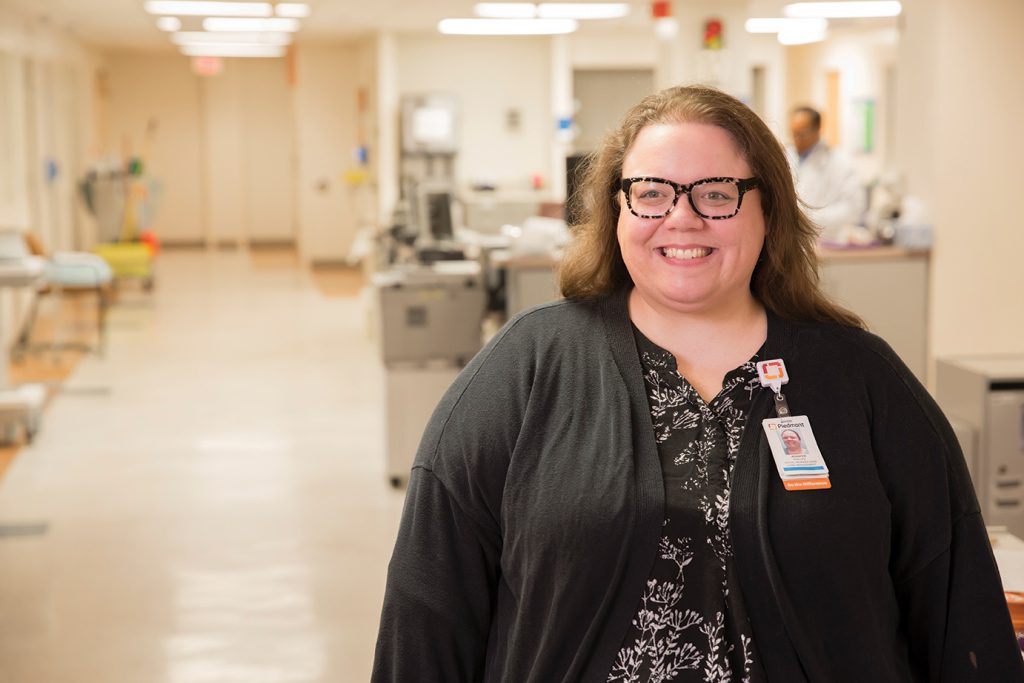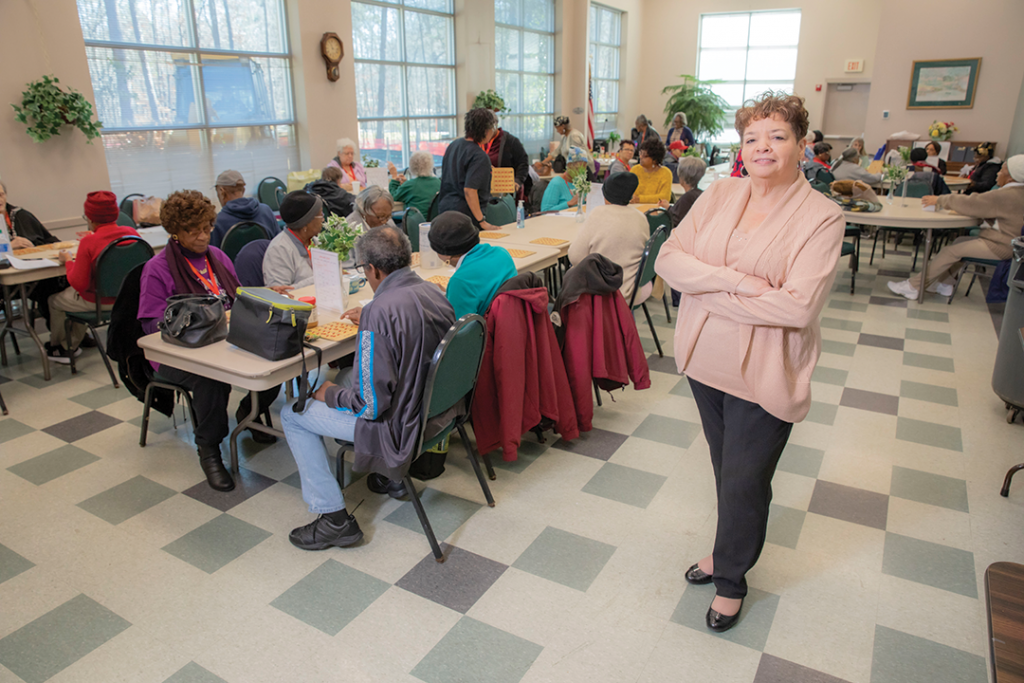The Willing Helpers Medical Clinic has provided free medical care to more than 8,000 uninsured Newton County residents since it opened in 2006.
With potentially more than 15,000 residents in the area who qualify for its services, the Willing Helpers Medical Clinic in Covington sees no shortage of people in need. As the county’s only source of free medical care, the clinic provides more than 2,000 visits annually and has seen over 8,000 uninsured Newton County residents since it opened in 2006.
“The clinic has never really advertised. We don’t have to,” said Dr. Timothy Park, medical director at the clinic. “When people in a community have needs, word of mouth tends to spread quickly.”
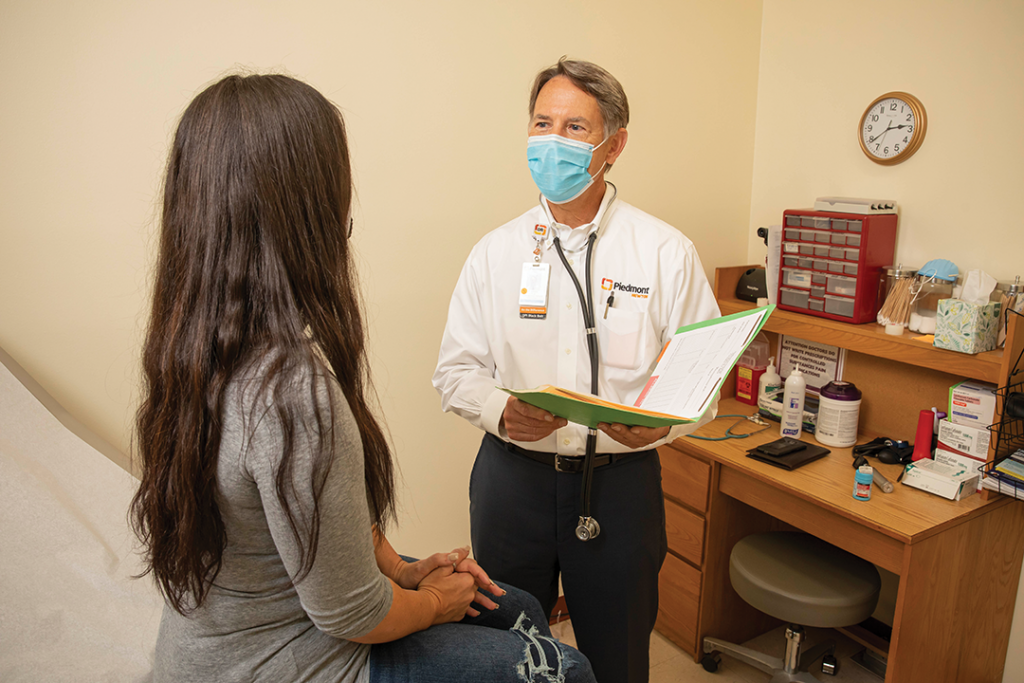
Doctors and nurses volunteer to see low-income, uninsured residents with chronic illnesses like high blood pressure, diabetes, heart disease, asthma and thyroid issues.
“Most of our patients work,” said Belinda Herndon, a retired registered nurse who serves as executive director of the clinic. “They just can’t afford the cost of medical care.”
When prospective patients contact the clinic, usually by phone or walk-in, they complete an application before being screened for eligibility for services. Patients must have a chronic illness, live in Newton County, have no health insurance and meet income requirements in order to be seen. Patients can receive lab work, have visits with volunteer doctors and nurses and procure help with medications or other equipment they need to manage their health.
“Many people without a primary care physician use the ER for their primary care. They just don’t know where to go, so we help the ER and they in turn help us.”
Willing Helpers Medical Clinic
Executive Director Belinda Herndon
The clinic currently has over 20 volunteer physicians and nurse practitioners, all local to the community. Most of them, including Dr. George Smith, Dr. James Stillerman and Dr. Christy Blanchford, have volunteered since the clinic opened. Other providers, like Dr. Donna Groover and Dr. Samantha Avoke, have joined more recently. Although financial constraints are real, community members continue to come through and provide for the clinic.
“We’ve had some people really help us,” said Park, who has worked in the healthcare field for nearly 40 years and currently works as a primary care internist under Piedmont Healthcare. “That is the only reason we can keep it going with the grants we’ve been given.”
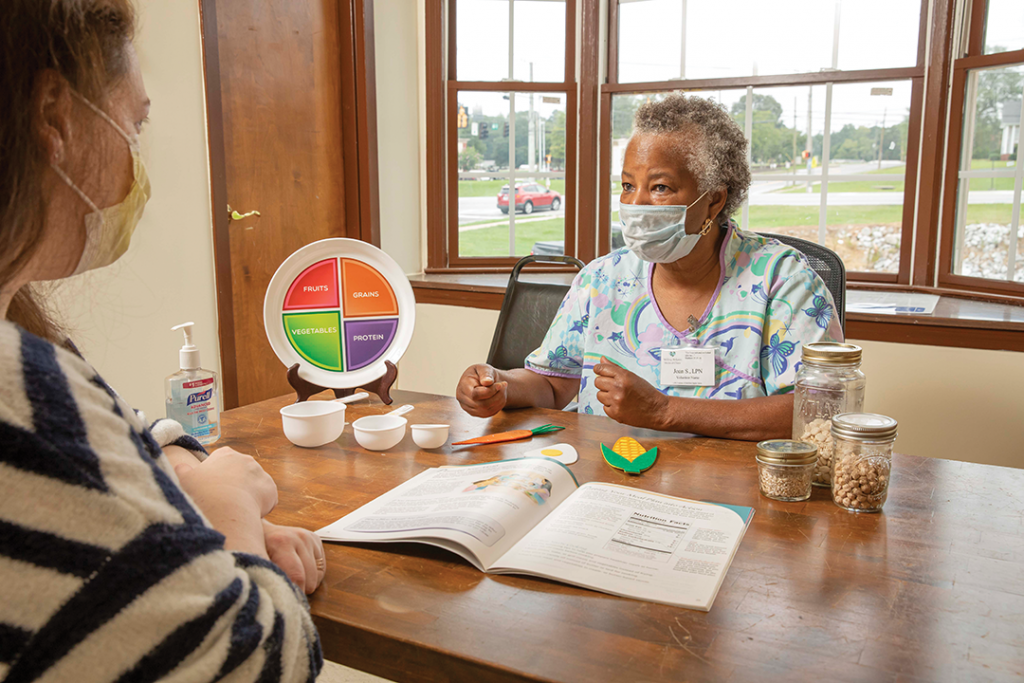
Piedmont Newton Hospital has for the last year made space available for the clinic at 4186 Mill Street in Covington—the former office of Dr. Robert Faulkner. The hospital assists with rent and utilities, allowing the clinic to reallocate funds to patient care. In addition to countless staff members who volunteer, the hospital also provides lab work for patients.
“We could never afford that for these patients. It’s worth a lot,” Park said. “They’ve been very supportive of the free clinic. It’s been great.”
Herndon revealed that many of the clinic’s patients originate from Piedmont’s Emergency Room referrals, which benefits both organizations.
“Many people without a primary care physician use the ER for their primary care,” Herndon said. “They just don’t know where to go, so we help the ER and they in turn help us.”
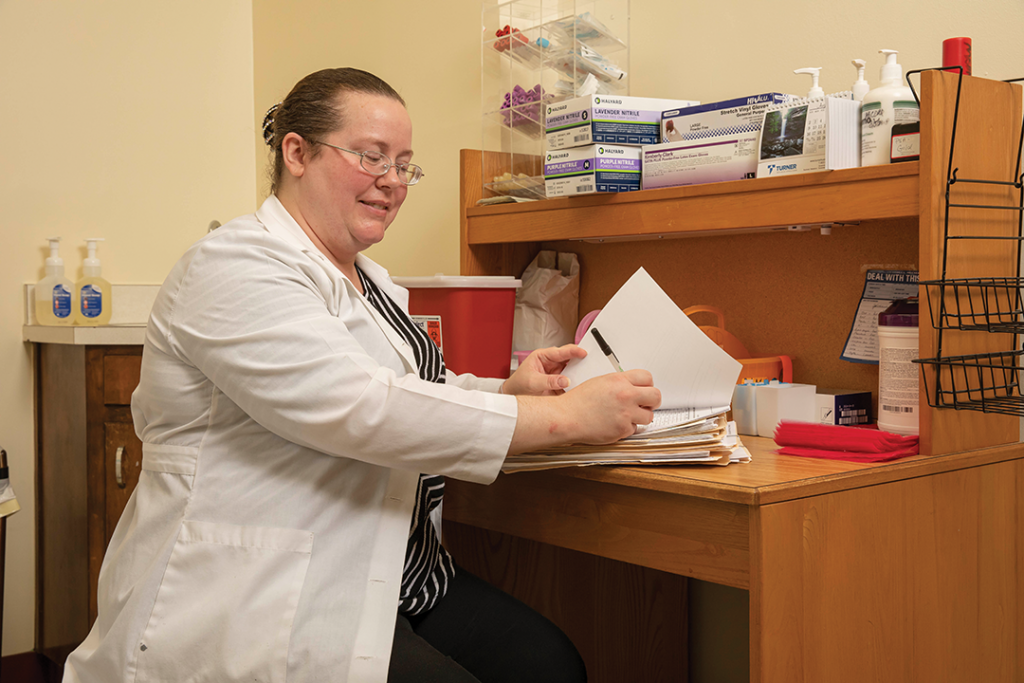
The clinic pays out of pocket for medications, testing materials for diabetics, nebulizer machines and breathing treatments, along with the medical and office supplies that it takes to run the operation.
“It’s amazing what office supplies cost,” Herndon said. “It takes so many little things to keep things moving. Sometimes, people don’t think about the money it takes to run a place like this, even with volunteers.”
With the move into the new space and the start of another year, Herndon hoped to visit churches, civic groups and other organizations that could help with fundraising and donations in 2020. However, coronavirus restrictions put a hold on those moves. “We had a lot of plans for this year,” Herndon said. Fortunately, smaller organizations, including local Sunday School classes and Girl Scout troops, have collected office supplies for the clinic; and the Newton County Hospital Authority donated $25,000. Meanwhile, local manufacturing company FiberVisions Coporation contributed $10,000 this year. “It was very timely,” Herndon said.
Shae Brown, PhD, a senior development scientist at FiberVisions, helped secure the funds for the clinic. According to Brown, Aloke Lohia, CEO of FiberVisions parent company Indorama Ventures, announced that a philanthropic fund of $2.5 million had been created to support Corporate Social Responsibility initiatives in response to the COVID-19 pandemic. The funds were designated to go to local communities, and employees could submit a proposal outlining an organization that was providing relief for damages brought on by the pandemic.
“I researched many local charities in the area and ultimately felt that Willing Helpers would benefit the most if my proposal was chosen,” Brown said. “They have been purchasing medicine, such as insulin, out of their own pockets to try and help our citizens but cannot maintain this throughout the crisis.”
When the COVID-19 pandemic started—although some processes changed, like having to conduct virtual or remote visits—the clinic saw an even greater need. “With the pandemic,” Park said, “many people are out of work and have lost their employee health insurance.” According to Herndon, the facility services roughly 500 patients per quarter during a normal year. However, from April to June 2020, it assisted more than 1,500 patients. Even current clinic patients are struggling to obtain their medications and medical supplies due to the pandemic. “It’s escalating,” Herndon said, “but we are still here and ready to help.”
For more information on the Willing Helpers Clinic, visit WillingHelpersClinic.com, call 678-625-8317 or find the clinic on Facebook and Instagram.
Click here to read more stories by Michelle Floyd.

